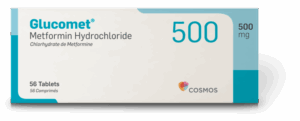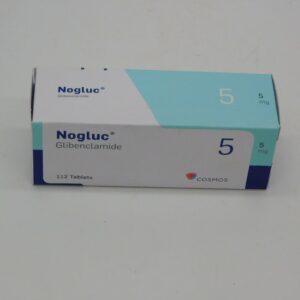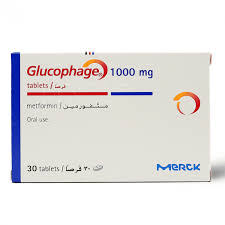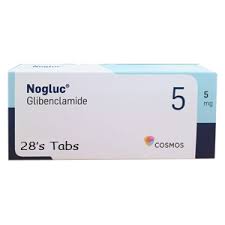Empiget 10mg Tablets 14's – Effective Blood Sugar Control with Empagliflozin for Type 2 Diabetes Management
Empiget 10mg Tablets (14’s) contain empagliflozin, a medication designed to help manage type 2 diabetes mellitus by lowering blood sugar levels. As a sodium-glucose co-transporter-2 (SGLT2) inhibitor, Empagliflozin works by blocking the reabsorption of glucose by the kidneys, allowing excess glucose to be excreted through urine. This not only helps to reduce blood sugar but also offers additional benefits, including weight loss and a reduction in blood pressure. Empiget is often prescribed alongside diet and exercise to help improve glycemic control in individuals with type 2 diabetes. It may also have cardiovascular benefits, particularly for patients with a history of heart disease. Empiget 10mg tablets are easy to take, typically once daily, making it a convenient option for those looking to manage their condition effectively.
How to Use Empiget 10mg Tablets
Take one Empiget 10mg tablet once daily, preferably in the morning with or without food. Swallow the tablet whole with a glass of water. It is important to follow your healthcare provider’s instructions regarding the dosage and never exceed the recommended dose. Regular monitoring of blood sugar levels and kidney function is advised during the treatment.
Precautions
- Consult your doctor before taking Empiget if you have a history of kidney disease, as it can affect kidney function.
- Empiget is not recommended for people with severe kidney impairment or those on dialysis.
- Inform your healthcare provider if you are pregnant, planning to become pregnant, or breastfeeding.
- It may increase the risk of urinary tract infections or genital infections. Drink plenty of fluids and maintain proper hygiene.
- If you experience signs of dehydration such as dizziness, fainting, or excessive thirst, consult your doctor immediately.
- Avoid excessive alcohol consumption during treatment.
Possible Side Effects
- Common side effects may include urinary tract infections, increased urination, and genital infections.
- Serious side effects, although rare, may include dehydration, ketoacidosis, low blood pressure, and kidney issues. If you experience any unusual symptoms like nausea, vomiting, or confusion, seek medical attention promptly.
















 No products in the cart.
No products in the cart. 